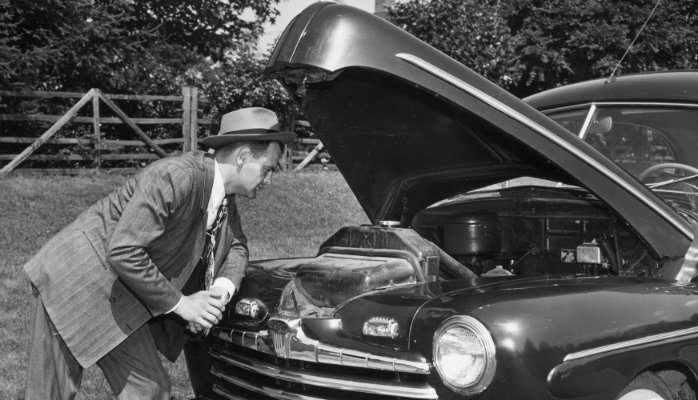A few years back, my car’s battery died at the most inopportune time. It was at night, in February, and winter winds lashed my face with wet snow as I jump-started the car back to life. The worst part was that I knew my battery was going to die.
A couple of weeks earlier, I’d found myself in a similar situation, in a parking lot, listening to the deafening silence of my car failing to start. Only on that occasion, I jiggled the battery cables, and by some miracle, the car started up. But a little red light flickered to life in my dashboard imploring me to take corrective action.
‘Check engine,’ my car begged.
‘Nah,’ said I.
After all, checking an engine requires time and money. I decided to push my luck, which ran out two weeks later.
I work in the auto industry, in service parts purchasing, and without fail, we see increased demand for batteries in the winter. The additional strain put on batteries in cold means that many of us will find ourselves stranded in parking lots, wishing we’d been more proactive.
Seventeen years of marriage have taught me that relationships are kind of like cars. Both require a lot of maintenance.
Those of us who are smart will invest our resources in preventive maintenance. The rest of us will find ourselves stranded wishing we’d have done something about the warning lights.
When my own marriage was pushed to the brink of divorce, I could look back over the years and see all kinds of indicators that were illuminated that should have prompted me to action, which I promptly ignored.
There have been several studies done on ‘Marital Satisfaction Over Time,’ and when shown on a graph, it looks like a U-shaped curve. Happiness in marriage begins dropping almost immediately after the honeymoon.
Before your car even loses its new-car smell, your will start to lose some of your luster in your spouse’s eyes. It’s predictable, just like knowing that you’ll have to replace a car battery every 3-5 years.
Sadly, when spouses start to feel their satisfaction slipping, many want to trade in for a newer model. The problem with new models is that they eventually become old models. And if our satisfaction and joy are solely based on other people, we will continually be let down.
That inevitable decline in marital bliss doesn’t mean we should resign ourselves to accept mediocre marriages though. There are so many ways we can fight against the tide of divorce. Primary among them is attending events or classes that equip us for lifelong love.
I need regular reminders of what it means to be a great spouse. We all do.
There is a powerful event coming up on February 9th and 10th at Ginghamsburg Church called Refine Us. Justin and Trisha Davis will share their story as a springboard to help couples choose the path to healthier marriages.
I’ve learned the hard way just how much I need this kind of advice. I will be there front and center, taking notes. I hope to see you there too.

